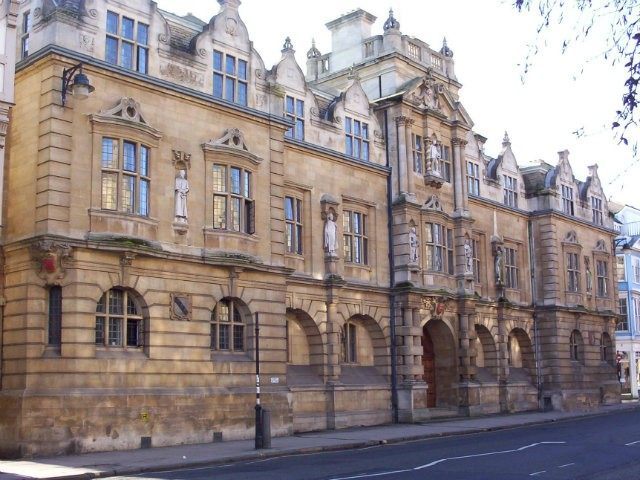Oxford students have begun a campaign to have a “racist” 100-year-old statue of Cecil Rhodes removed from a grade II listed building, and to “decolonise” the “Eurocentric” curriculum.
Student radicals claim the statue of the British businessman, mining magnate, philanthropist and politician – who left part of his estate to Oriel College which funded the construction of the building bearing his statue – is “problematic” and conveys “violence.”
A hashtag (#rhodesmustfalloxford) has been gaining momentum and a Facebook page has rapidly collected 2,700 likes. The page claims to represent, “An organisation determined to decolonise the space, the curriculum, and the institutional memory at, and to fight intersectional oppression within, Oxford.”
The students wish to change curriculums and reading lists, arguing that they are too “Eurocentric” and do not include enough work by “people of colour”.
Ntokozo Qwabe, a Law student from South Africa and a Rhodes Scholar (a famous scholarship set up and funded by Rhodes himself which pays for thousands of international students to study in Oxford) said to The Guardian: “Many marginalised groups have made valuable contributions in various fields, so the explicit exclusion of these groups is in our view symptomatic of a broader problem.”
The campaign follows a pattern of cultural cleansing on campuses around the world. The Oxford “movement” has been directly inspired by iconoclastic students in South Africa who successfully managed to have a historical statue of Rhodes removed from their campus in April by protesting and pouring human faeces on the figure.
Annie Teriba of the National Union of Students (NUS) Black students’ campaign, member of the Oxford “movement” and second year history and politics student, told Sky News:
“[The statue is] a reminder, more than being a statue, that when this university was built it wasn’t built with us in mind it was built off the back of exploiting labour and the colonial project and it’s something that still gets celebrated in the form of a statue. That’s something that students of colour really take seriously.
“There’s a violence to having to walk past the statue every day on the way to your lectures, there’s a violence to having to sit with paintings of former slave holders whilst writing your exams – that’s really problematic.”
A spokesperson for Oriel College said:
“When Cecil Rhodes died in 1902 he left two per cent of his estate to Oriel College, where he had been a student. His legacy helped to fund the construction of a new building, opened in 1911, which is now Grade II listed. The building frontage included a statue commemorating his benefaction.
“Now, over a century after the building was constructed, Rhodes is thought of very differently. The College draws a clear line between acknowledging the historical fact of Rhodes’ donation and in any way condoning his political views.
“Oriel College is committed to being at the forefront of the drive to make Oxford University more diverse and inclusive of people from all backgrounds.”
A University of Oxford spokesperson told The Guardian:
“Students have given us a detailed and nuanced account of black and minority ethnic student experiences at Oxford. It showed that while BME students generally thrive and do well at Oxford, there are incidents of insensitivity and some students can feel isolated. The university is committed to addressing this and welcomes the fact that its students can raise these issues in a constructive and co-operative atmosphere.”
Kiran Benipal, a Classics student and co-founder of Rhodes Must Fall In Oxford, claims black and minority ethnic students are more likely to be stopped by porters when entering their college. She said:
“On one occasion a black friend was late for her tutorial and running through her college – where she had been for three years. She was chased by the porter and after forgetting her student card she was made to sign in to her university email account to prove she was a student.”

COMMENTS
Please let us know if you're having issues with commenting.